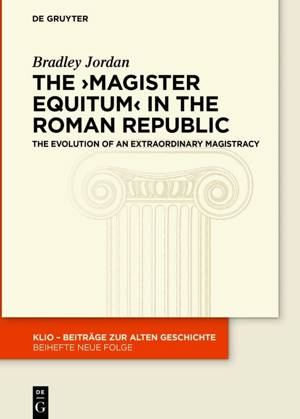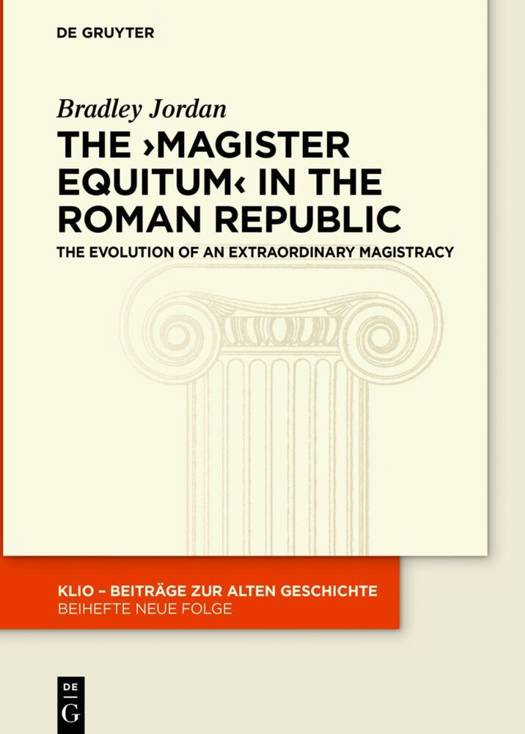
Bedankt voor het vertrouwen het afgelopen jaar! Om jou te bedanken bieden we GRATIS verzending (in België) aan op alles gedurende de hele maand januari.
- Afhalen na 1 uur in een winkel met voorraad
- In januari gratis thuislevering in België
- Ruim aanbod met 7 miljoen producten
Bedankt voor het vertrouwen het afgelopen jaar! Om jou te bedanken bieden we GRATIS verzending (in België) aan op alles gedurende de hele maand januari.
- Afhalen na 1 uur in een winkel met voorraad
- In januari gratis thuislevering in België
- Ruim aanbod met 7 miljoen producten
Zoeken
€ 170,95
+ 341 punten
Omschrijving
The magister equitum, a subordinate to the Roman dictator during the Roman Republic, has been little studied to-date, in part due to the scattered and antiquarian nature of the evidence. This book addresses this gap by providing a definitive description and analysis of the office, focusing on three core questions: first, and most importantly, what were the powers and role of the office?; second, what senatorial rank did the magister equitum have?; finally, how did the magister equitum evolve under the first century BCE dictators, Sulla and Caesar? The book engages with recent advances in understanding the constitutional foundations and development of the Republican state to re-assess the role played by the office and its occupants in crucial moments of Roman history. It argues that the magister equitum was, and was understood by Romans to be, a central and significant part of the Roman Republican constitution.
Specificaties
Betrokkenen
- Auteur(s):
- Uitgeverij:
Inhoud
- Aantal bladzijden:
- 183
- Taal:
- Engels
- Reeks:
- Reeksnummer:
- nr. 38
Eigenschappen
- Productcode (EAN):
- 9783111338583
- Verschijningsdatum:
- 29/01/2024
- Uitvoering:
- Hardcover
- Formaat:
- Genaaid
- Afmetingen:
- 170 mm x 244 mm
- Gewicht:
- 498 g

Alleen bij Standaard Boekhandel
+ 341 punten op je klantenkaart van Standaard Boekhandel
Beoordelingen
We publiceren alleen reviews die voldoen aan de voorwaarden voor reviews. Bekijk onze voorwaarden voor reviews.









